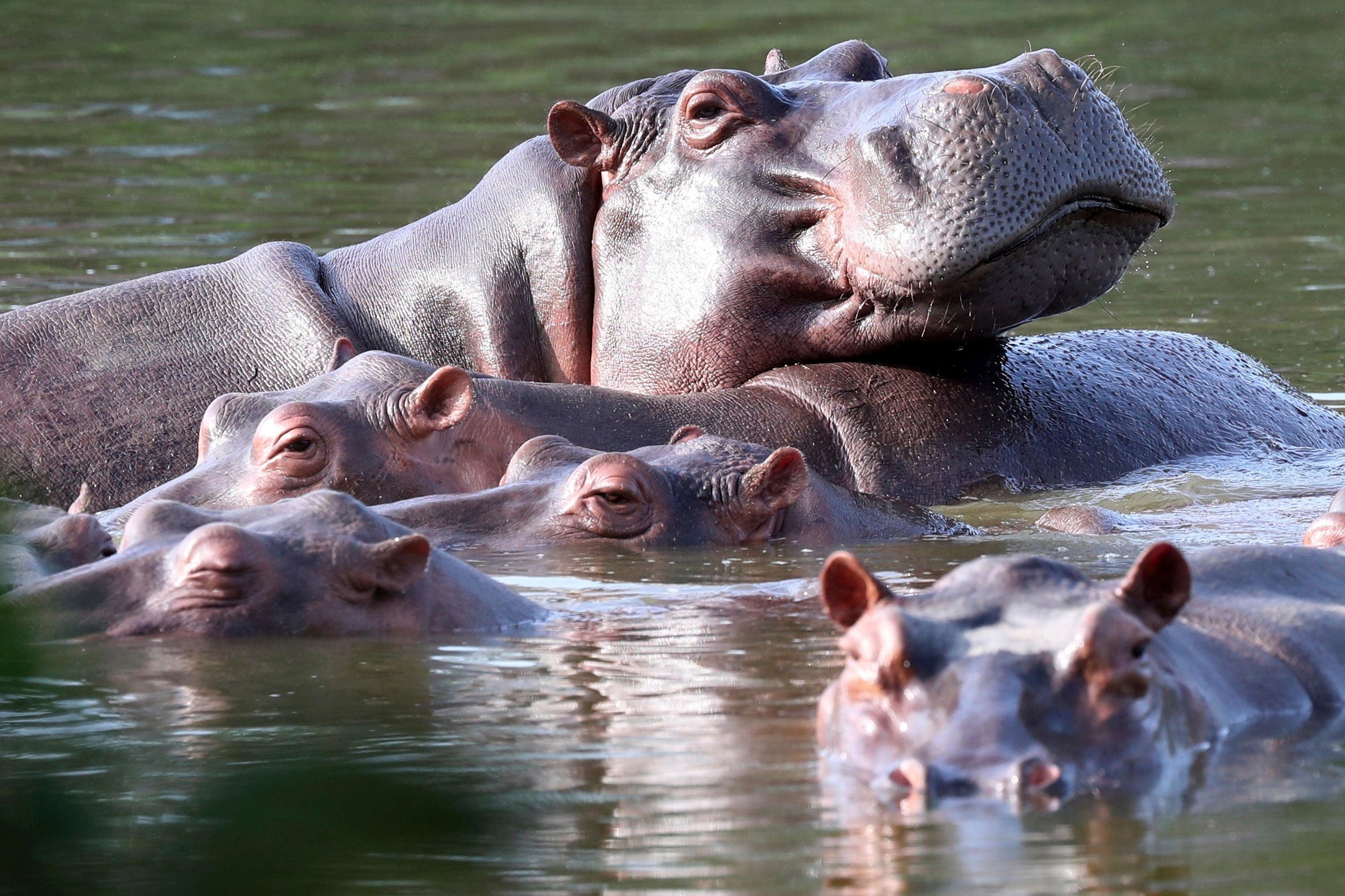Pablo Escobar’s rogue ‘cocaine hippos’ sterilised by Colombia
There are more than 100 descendants of hippos illegally brought to the country by drug kingpin Pablo Escobar in the 1980s – and it’s feared there could be more than 1,000 animals by 2035 without action
Your support helps us to tell the story
From reproductive rights to climate change to Big Tech, The Independent is on the ground when the story is developing. Whether it's investigating the financials of Elon Musk's pro-Trump PAC or producing our latest documentary, 'The A Word', which shines a light on the American women fighting for reproductive rights, we know how important it is to parse out the facts from the messaging.
At such a critical moment in US history, we need reporters on the ground. Your donation allows us to keep sending journalists to speak to both sides of the story.
The Independent is trusted by Americans across the entire political spectrum. And unlike many other quality news outlets, we choose not to lock Americans out of our reporting and analysis with paywalls. We believe quality journalism should be available to everyone, paid for by those who can afford it.
Your support makes all the difference.Colombia on Tuesday began the sterilization of hippopotamuses, descendants of animals illegally brought to the country by late drug kingpin Pablo Escobar in the 1980s.
Two male hippos and one female underwent surgical sterilization, environmental authorities said. It is part of a larger government effort to control the population of more than 100 of the mammals that roam around unsupervised in some rivers.
The plan includes the sterilization of 40 of the so-called “cocaine hippos” a year, transfer some of them to other countries and possibly euthanasia.

The hippos, which spread from Escobar’s estate into nearby rivers where they flourished, have no natural predators in Colombia and have been declared an invasive species that could upset the ecosystem.
A group of hippos was brought in the 1980s to Hacienda Nápoles, Escobar’s private zoo that became a tourist attraction after his death in 1993. Most of the animals live freely in rivers and reproduce without control.

Sterilization takes time, because spotting and capturing the territorial, aggressive 3-ton animals is complicated, David Echeverry López, chief of the environment office in charge of the plan, said in a video distributed to the press.
Rain events around the area have complicated efforts to capture the animals. More grass means "they have an oversupply of food, so baiting them to capture them becomes even more complicated,” Echeverry said.
The government estimates there are 169 hippos in Colombia, especially in the Magdalena River basin, and that if no measures are taken, there could be 1,000 by 2035.
When the plan was first announced, the environment ministry said the procedure is expensive — each sterilization costs about $9,800 — and entails risks for the hippopotamus, including allergic reactions to anesthesia or death, as well as risks to the animal health personnel.
